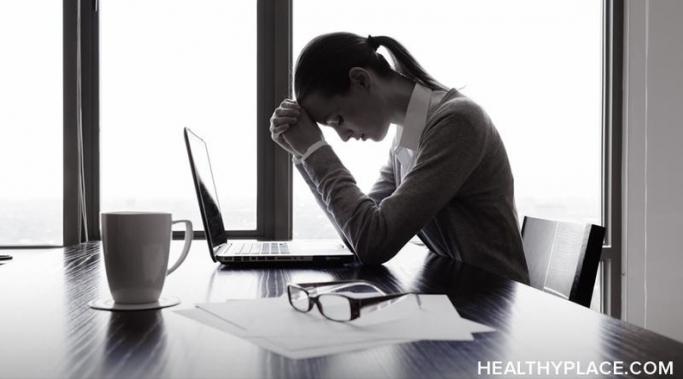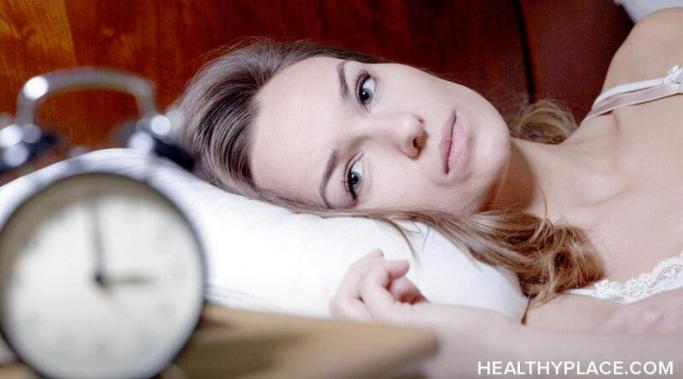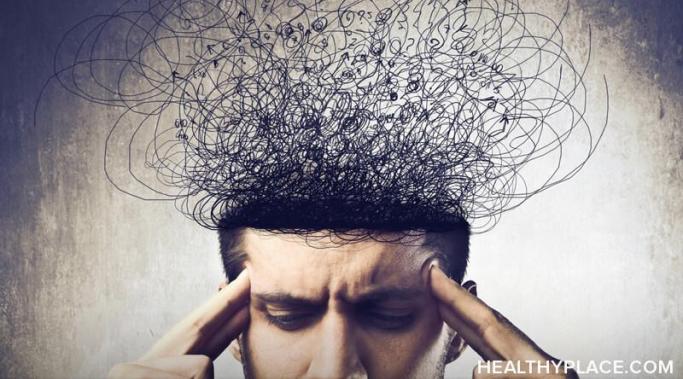One of the symptoms of anxiety is trouble focusing, and I’m going through that right now. I always find it fascinating when I consider the fact that so many of my anxiety symptoms manifest at the most random times. I haven’t had to deal with lack of focus and anxiety for a while, but now, it seems as though I haven’t been able to focus on anything for several days.
Anxiety Symptoms – Anxiety Schmanxiety
I'm feeling like an insomniac this week. I've written in the past about what to do when anxiety keeps you awake. At that point I was writing with some distance -- this week, however, I've found myself unable to sleep well almost every night.
I have a problem with stress eating. To be fair, during periods of high anxiety, my body seems to modulate between wanting to eat nothing and wanting to eat everything, but more often than not it seems to be the latter. Both are problematic, but obviously, stress eating leaves you more prone to weight gain and escalating grocery bills, so it’s worth getting under control.
Anxiety can hurt. It can be emotionally painful, and it can be physically agonizing, too--so much so that physical symptoms of anxiety frequently send people to their doctor's office or hospital emergency department (ED). Almost 1.25 million people visited an ED for physical symptoms of anxiety annually between 2009 and 20111. It's important to seek medical help to rule out serious and potentially life-threatening conditions; however, it's frustrating to be discharged with a shrug and casual statement that "it's just anxiety." Read on to learn more about anxiety's physical symptoms and how to feel better when anxiety hurts.
What is anxiety? Odd as it may seem, that is a common, and quite legitimate, question. People who live with anxiety typically understand that they are experiencing it. Anxiety feels stressful, crushing, stifling, shocking, painful, and incredibly difficult. People typically know when anxiety is interfering in their lives. But what, exactly, is anxiety? How is it experienced? Is anxiety a thought? Is it an emotion? Is it a behavior? The more you know what anxiety is and about your own unique experience with it, the better equipped you'll be to use the right strategies to move past it.
Treating the pain of anxiety and headaches is increasingly possible now that medical and mental health professionals are beginning to understand the very real connection between anxiety and headaches. In the past, doctors treated anxiety and headaches as two separate conditions. People who lived with both of these uncomfortable illnesses often failed to get true relief. Now that people are beginning to uncover the connection between the two, treating the pain of anxiety and headaches is possible. You can improve not just anxiety and headaches but the overall quality of your life.
Social anxiety can feel torturous, and to deal with it, many people use safety behaviors. Safety behaviors are specific things someone does, usually knowingly but sometimes subconsciously, to cope with anxiety. Safety behaviors can be a part of many disorders; however, they're most commonly associated with social anxiety disorder. The issue, when it comes to social anxiety and safety behaviors, is whether these behaviors are helpful or harmful.
Paying attention to signs that you may have an anxiety disorder can be helpful. Anxiety is miserable. Also miserable is not quite knowing if you have anxiety, something else, or nothing at all. This state of unknowing is in itself a sign of anxiety (bringing our list to 10). To help yourself solve the puzzle of what you're experiencing, read on to see if you have any of these nine signs you may have an anxiety disorder.
Ever so often, trying new anxiety management strategies is a good idea because anxiety has a way of sticking around long past when its welcome. Dealing with symptoms of anxiety day after day can be discouraging. When you’ve tried anxiety management strategies but anxiety still hangs on, it might be time to switch your approach. Most likely, you’re well aware of the need to try new ways to reduce anxiety. So often with anxiety, we know what we need to do, but because anxiety takes control of our thoughts, emotions, and actions, we feel stuck. The list that follows contains ideas for managing old anxiety symptoms with new anxiety management strategies.
If you're asking yourself, "Do I need therapy for anxiety?", this article will help you find an answer. Anxiety therapy can be extremely helpful in reducing anxiety and taking back the person you know you are and miss having around. As bad as anxiety can be, we often are unsure of whether or not we need therapy for anxiety. We wonder if we’re making too big of a deal out of things. Should we just keep trying to deal with anxiety symptoms by ourselves? Wondering when to enlist the help of a therapist is common. This checklist can be a useful tool in deciding whether you need therapy for anxiety or not.









